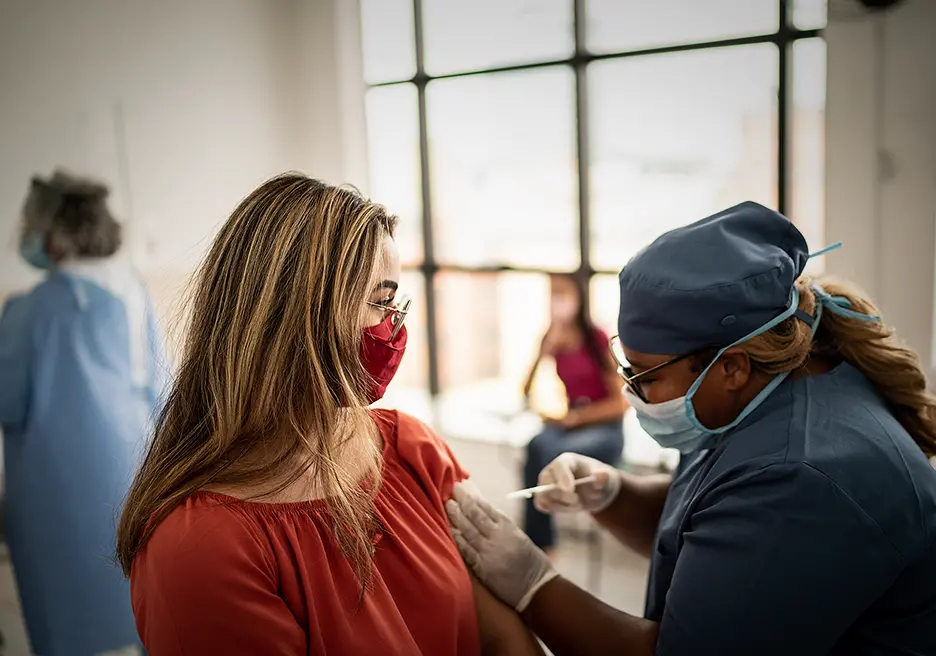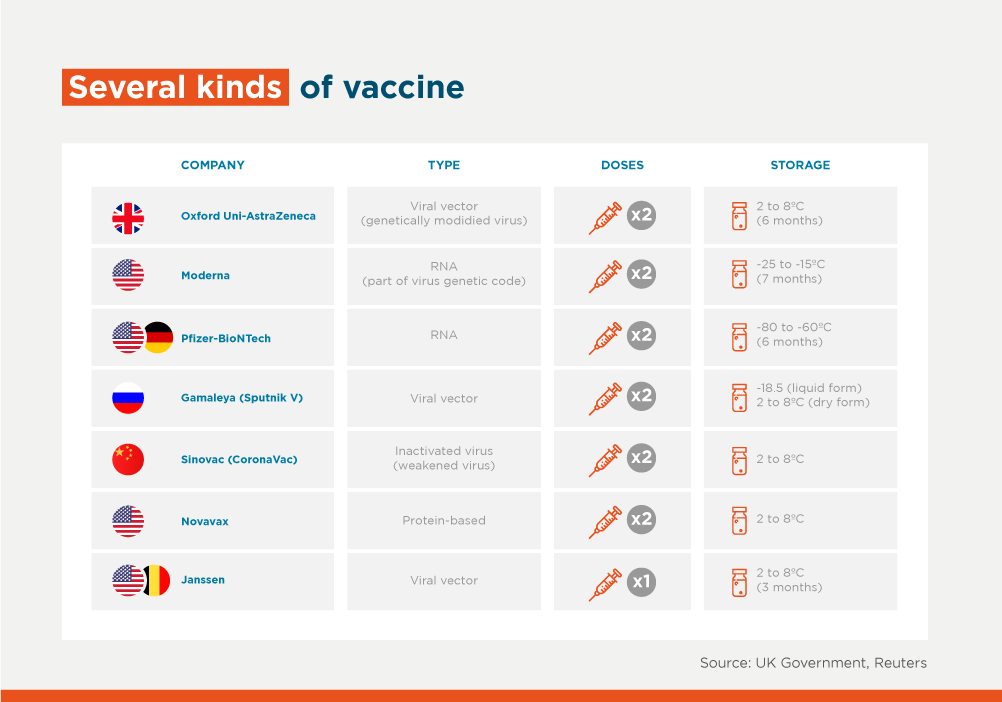The Private Sector: a Key Player in the Acceleration of the COVID-19 Vaccine Rollout

The global COVID-19 vaccination campaign will be the largest in history and the delivery of vaccines brings major challenges of scale and speed. Here’s three ways in which the private sector in Latin America and the Caribbean (LAC) has a strategic role to play in that process.
Private health agents are a key partner in vaccine administration. Countries have the challenge of quickly administering COVID-19 vaccines to prioritized populations across their territories. However, readiness for deployment varies greatly in the region. According to a World Bank report, on a score from zero to one, LAC countries range from 0.06 in Haiti, to 0.76 in Colombia.
In addition to infrastructure and reach, the administration of such doses requires trained personnel. According to the report, only 30% of countries in the sample have developed processes to train the large number of personnel that will be needed. In this regard, scaling partnerships with private sector health providers – and other agents such as pharmacies, diagnostic care, care centers, and mobile clinics – can be instrumental for supplying skilled personnel, increasing reach, and administering vaccines at a faster pace.
For instance, in Colombia, companies such as Farmalisto, financed by IDB Invest, are supporting in vaccination deployment. Currently they are negotiating with several EPS – a Spanish acronym for Entidades Promotoras de Servicios, or providers of health services under Colombia’s public system – responsible for the process, and by now they have reached an agreement with one of them to vaccinate 29,000 patients per month.
In addition, Farmalisto is ready to support the government and the community by offering the private vaccination service, once the pharmaceutical laboratories agree to distribute their vaccines within the private market. To do so, they have developed a vaccination plan and signed several contracts with private companies.
The private sector is also a strategic ally in transportation and storage, key links in the supply chain. Cold-chain and ultra-cold chain transport and storage will need to be improved or developed to meet technical requirements and future capacity needs of COVID-19 vaccines. Currently, vaccination storage and handling call for temperatures between 2°C-8°C and up to -80°C depending on the manufacturer.

The latter is a particular challenge for developing economies, and those with highly sparse and rural population. To better address this, countries can further engage in partnerships or contract agreements with private companies that handle temperature-sensitive products to ensure the adequate infrastructure for vaccine storage and transportation. These partners include but are not limited to private companies in the health industry and supply chain.
Finally, the private sector can help raise awareness and encourage vaccination. Recent comments from the likes of McKinsey raise caution on potential consumer skepticism and the need to instill public confidence for the successful adoption of vaccines. In this regard, as part of the partnerships proposed above, the private sector in health can use its customer marketing capabilities to increase communication channels to inform the population about the COVID-19 vaccine, generate awareness and increase acceptance.
Reflecting upon this year’s WHO’s Immunization Week, vaccines have brought the public and private sector closer, and together there is more hope in bringing people closer again. IDB Invest stands ready to support the private sector in investments to help scale the deployment of COVID-19 vaccines in a sustainable and equitable way.
LIKE WHAT YOU JUST READ?
Subscribe to our mailing list to stay informed on the latest IDB Invest news, blog posts, upcoming events, and to learn more about specific areas of interest.
Subscribe



